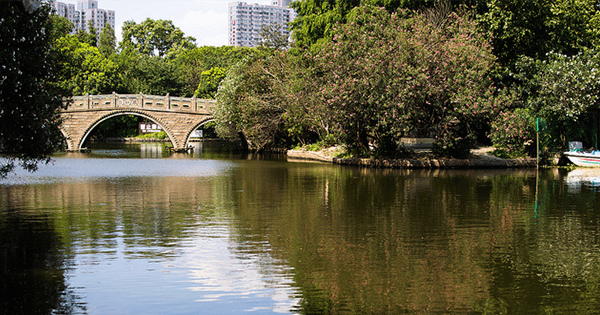
The class I’m teaching at Fudan University is a ragtag affair, thrown together during exam week, and the students seem to be there on a volunteer basis, so attendance is spotty. It meets three times, each session lasting two and a half hours, which is a lot of lecture time to fill. Unsure what level of English comprehension the students would have (and lazy, if truth be told), I decided not to write out lectures but to improvise. I requested, and was given, a translator, a non-Chinese American named Isaac from Green Bay, Wisconsin, who has studied Mandarin for eight years. We are joined at the hip, I speaking a few sentences and he doing the best he can to put it into Chinese. Some of the students understand English well and are annoyed at this procedure, but others haven’t a clue. The majority are linguistics majors, but there are also a few auditors, professors from the biology and political science departments. I have had a hard time gauging everyone’s literary sophistication, and sometimes, in and around the occasional brilliant pedagogic moment, find myself mouthing platitudes like, “You may be bored with yourself but you must find Life interesting and a mystery.” Where is this crap coming from? Desperation, mostly. I had mistakenly assumed I would be talking to creative writing graduate students, only to learn no creative writing courses were offered at their university. They are expected to write only academic papers, sometimes six per course, and could use some help, they say, in that area, like the very bright student who is writing a thesis on Wallace Stevens and reading Heidegger. They seem puzzled at my championing of the personal essay, or my urging the employment of subjectivity, contrarianism, and expressiveness in forming a unique style. One student tells me flat out, “In China there is no such thing as the personal essay.”
I know this isn’t strictly true because I included a few examples from the writer Lu Xun in my Art of the Personal Essay anthology. Lu Xun (1881–1936) is revered as one of the greatest modern Chinese writers. His largely autobiographical sketches about impoverished intellectuals or the hardships of common people have a forlorn poignancy and admirable directness. I decided to make a pilgrimage to his house and the nearby Lu Xun Park, with its mausoleum and museum. We have been incredibly fortunate, my wife and I, in being assigned a succession of English-speaking student guides who not only negotiate all dealings with taxi drivers, ticket sellers, waiters, and merchants but also insist on paying for everything (as their dean has instructed them). These young people are wonderfully kind, open, tactful, resourceful, and vibrant. Pointless as it is to generalize about a people, especially one numerous as the Chinese, I have to say that those we’ve encountered on this trip are extraordinarily hospitable, warm, and attentive; they put Americans to shame in regard to the care of foreign visitors.
The neighborhood where Lu Xun spent his last years is a well-preserved area of stucco villas, alleys, and sturdy old houses covered in alternating gray and orange brick bands, topped with orange tiled roofs—a welcome remnant of old Shanghai. The author’s narrow three-story house, as it happened, was closed for repairs; it stood at the end of a cul-de-sac alley, and we were fine with viewing it from the outside.
We walked on to Lu Xun Park, which was a lively public space, with several competing bands playing simultaneously, a Charles Ives–like effect. There were also knots of oldsters singing nostalgically the songs of their youth. I had gotten the misimpression, from hanging around the university area, that China was a country of the young. So this was where they were keeping the old people!
Inside the park, the Lu Xun Museum, a large modern building, beckoned. Its exhibits featured photographs of the handsome if grimly stern author, his two wives, his friends and teachers, as well as his manuscripts and letters, and a wall of book jackets from various editions of his work in China and around the world. I could not help envying the way this author was honored, and was unable to think of a single American writer accorded the same respectful treatment. Nevertheless, I was put off by the way the poor guy had been co-opted by the Chinese Communist Party after his death and turned into a proto-Maoist saint. The CCCP needed heroes, and he fit the bill, though he never joined the party during his lifetime and was jealously protective of his independence. I asked our student guide, a very pretty, intelligent young woman, whether she agreed with this assessment. She said noncommittally that people were free to read him on their own and draw their conclusions.
Hesitant to probe my hosts’ political views further, which might land them in trouble, I let it drop at that. We ended the excursion by stopping in at a hole-in-the-wall takeout joint that we were told made the best soup dumplings, a Shanghai specialty, in town. They were indeed absolutely delicious.

